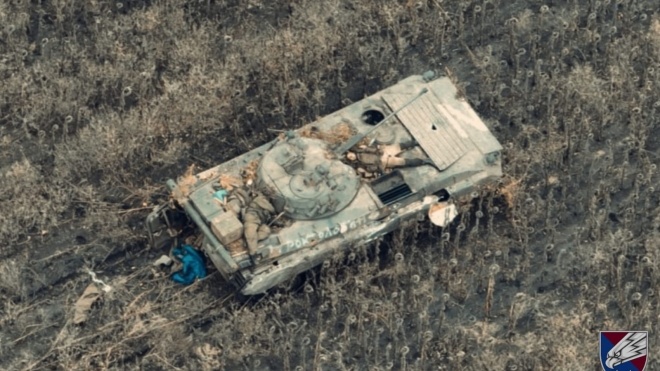The Russian attack on Ukraine did not bring closer, but pushed back in time a possible Chinese invasion of Taiwan, writes Foreign Policy. The reason for this is the failures of the Russians at the front. The war showed that the advertised Russian army uses outdated equipment, its "high-precision" projectiles donʼt hit their targets, the soldiers lack food and ammunition ― and the further it goes, the worse it gets. Beijing understands that the condition of the Chinese army is not better. And, in contrast to the ostentatious bravado of Putin or Shoigu, Chinese military leaders prefer to remain overly cautious so as not to embarrass themselves or China in the event of military operations. So now China is checking the state of its own army ― from the situation with equipment to the real capabilities of weapons. However, FP notes, one of the biggest problems of both the Russian and Chinese armies cannot be solved by a simple revision and allocation of an additional budget. The style of army management in these countries has become a serious flaw in modern conditions: it is characterized by strict vertical integration and a minimum of freedom at the grassroots level. As the experience of the Ukrainian army shows, the freedom of action of the commanders of the middle and lower ranks often shows itself well: small mobile Ukrainian units easily inflict painful bites on the clumsy Russian army. It will not work to change the style of command in a month or a year, because it is a consequence of the model of societyʼs functioning, the publication notes.
The New Yorker writes about how the Americans developed the sanctions mechanism and how they convinced the Europeans to join the financial restrictions against Russia. In a lengthy article, the publication describes the work of a small group of financial analysts under the leadership of Adewale Adeyemo, the US Deputy Secretary of the Treasury. Back in the spring of 2021, when Putin began to bring troops to the Ukrainian border, American officials came to Brussels to "check the clocks" and find out how the mechanism of financial sanctions against the aggressor might work. They planned to apply these sanctions not only as a punishment for aggression, but as a warning: to make feel what may await the aggressor if it dares to carry out threats. At first, European colleagues did not seem ready to cooperate, the publication writes. They set aside an hour or two for meetings with the Americans, while the issues planned for discussion required several days. It soon became clear that Europe is very dependent on Russia in matters of energy. During 2021, a group of advisers worked on the question of how this dependence can be reduced, and then ― which companies and which people from Russia should be subject to sanctions. On the American side, this process was managed by Elizabeth Rosenberg, Adeyemoʼs subordinate. She often visited Brussels, cooperating with local analysts from different countries. It was necessary to find out which country could block what, and to what extent it would be an effective blow to the Russian economy. Returning to Washington, Rosenberg passed on data to the intelligence department of the US Treasury, the only such unit in the finance ministries of the world. During another such visit to the department, at 10 p.m., Rosenberg was informed that Putin had sent troops into Ukraine. The war began. The first package of sanctions was activated the next day. Were these measures effective? In the first month after the invasion, the Russian economy went into a nosedive, but then recovered. Putin seems to have no intention of ending his bloodthirsty campaign, even as he plunges deeper into the war. European and American businesses are suffering from inflation and high fuel prices. Civilian Russians also suffer ― because sanctions ultimately mean lower incomes, worse nutrition and health, including of those people who donʼt support the war. However, economists interviewed by The New Yorker assure that this is not a quick story, and the first significant results are already there: for example, due to a lack of components in Russia, two tank factories have stopped, the Kremlin in general cannot replenish the stocks of its "high-tech" weapons. And, yes, Russia still earns from oil and gas, but the profits go not to finance the war, but to support the ruble exchange rate. "Those are exactly the types of choices we want Russia to make," says Adeyemo. "Choices to waste resources to prop up the stock market."
